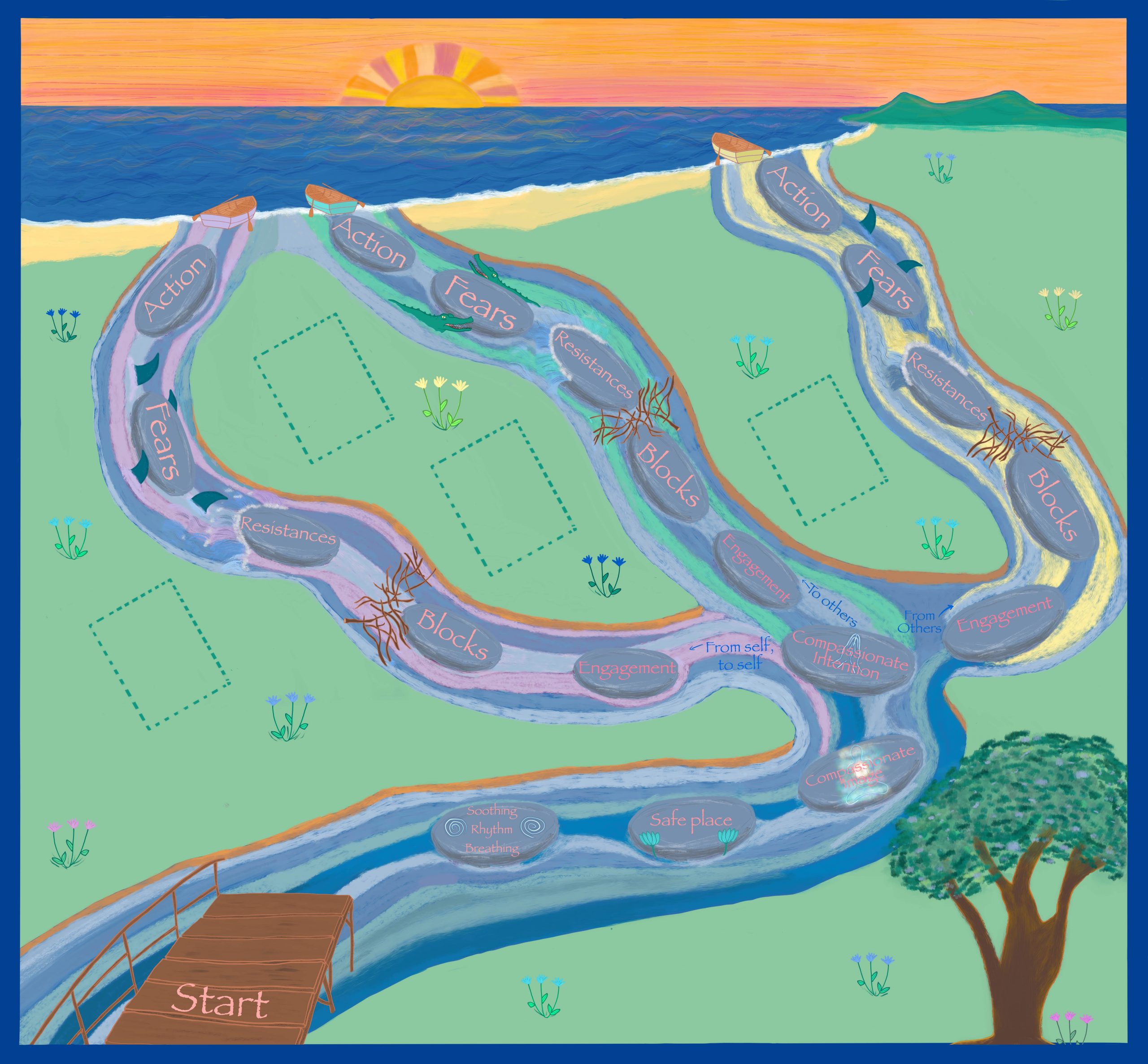The Stepping Stones to a Compassionate Life Game is a therapeutic game that allows players to explore what it would be like to engage and put into action the three flows of compassion: compassion to others, compassion from others, and self-compassion. Players will have the opportunity to identify a difficult moment in their life where they would like to be more compassionate and the fears, blocks, and resistances that get in the way of being their most compassionate self.
The Stepping Stones to a Compassionate Life Game is designed for therapists who are competent in Compassion Focused Therapy (CFT: Gilbert, 2009) and clients who are familiar with the key CFT concepts. Therapists take responsibility for assessing client risk before, during and after playing the game and/or suspending play when appropriate.
The game is free, but if you find it helpful I would ask you to consider making a small donation to The Life You Can Save Charity.

Stepping Stones to a Compassionate Life Game FAQ
Compassion Focused Therapy (CFT) Therapeutic Game Frequently Asked Questions (FAQ)
The game has been designed to take approximately 50 minutes for a player familiar with the basics of CFT and a therapist comfortable with delivering CFT.
Yes, the Stepping Stones to a Compassionate Life Game provides the opportunity for players to identify their fears, blocks and resistances to acting compassionately in a situation they have identified. Players are able to choose and utilise resources to address their fears, blocks and resistances.
The game was developed by Psychologists: Peter Gillogley, Grainne Schafer and Hayley D Quinn. Game images: Grainne Schafer, Review and edits by Psychotherapist: Adrianna Kaye.
The idea for the Stepping Stones to a Compassionate Life was inspired by other therapeutic games including Sarah Mooy, creator of the DNA-V Game, and Ellis Edmunds, creator of The Mindful Bus.
An initial release of the game for general use is planned for mid-2021.
Release History
2021 April – Updated draft under development
2021 March – Initial draft of the game developed for trial use.
The authors welcome constructive feedback on the content of the Compassionate Stepping Stones game. Please email feedback to Peter Gillogley via email using the following email address (without the spaces): compassion @ gillogley.com
The game is still under active development so feedback regarding typos and formatting errors will improve its professionalism and usability. Also additional resource cards or proposed changes to the wording are welcome, including more intuitive titles for particular resource cards.
We have tried to keep the instructions to fit on a single duplex page and resource cards to have roughly 70 words or less (so they are brief and readable when printed), so suggested changes that do not make the instructions or resource cards longer are more likely to be adopted.
There is some duplication of resources for the FBRs, so suggested improvements are particularly welcome. Also additional myths that are raised by your clients and a brief response for an additional resource card would be welcome.
© Peter Gillogley, Grainne Schafer and Hayley D Quinn 2021.
© CFT – Professor Paul Gilbert (2009).
No part of this publication may be reproduced, stored in any retrieval system, or transmitted in any form or by any means (electronic, mechanical, photocopying, recording or otherwise), in a proprietary way without prior written permission of the author
